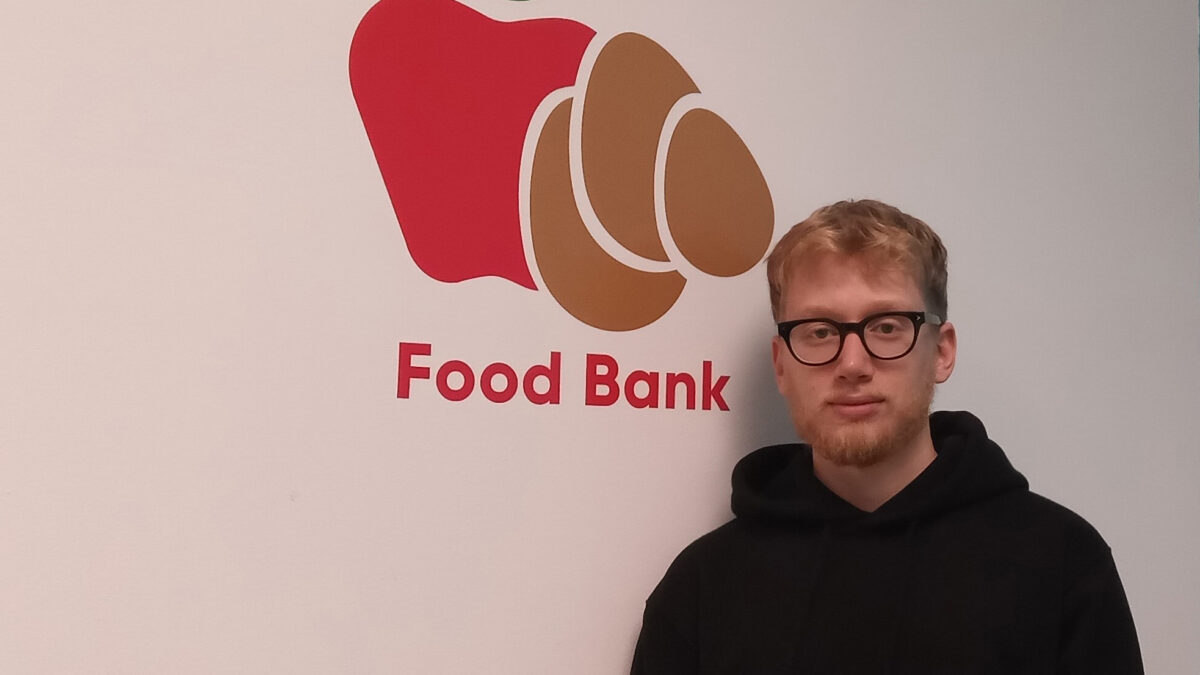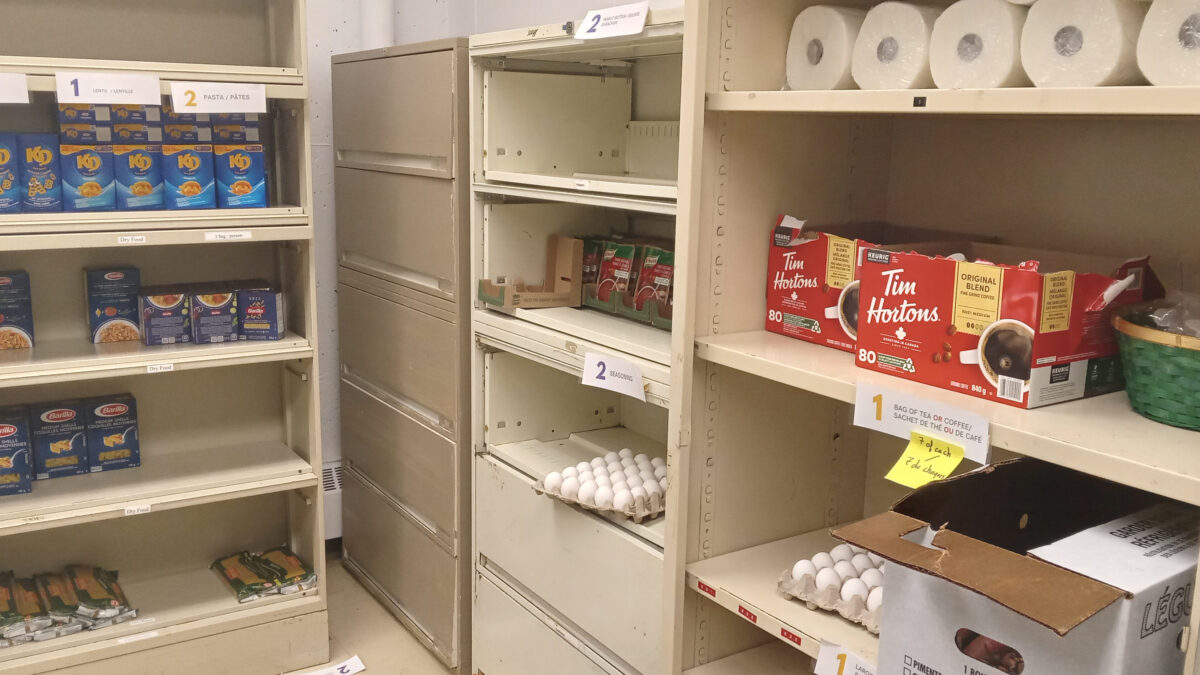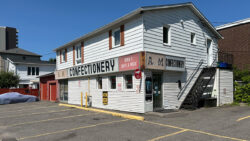“Groceries are expensive,” said Mukazi Ntagungira, a third-year international development and globalization student at the University of Ottawa.
So expensive, in fact, she was one of dozens of students forced to rely on her campus food bank during the fall semester in 2022. Since then, demand has only increased.
Students in need can access the food bank every first Monday of the month, Ntagungira said.
But, on subsequent days, she added, there is little, or nothing left, and that is a concern. “Inadequate supply is one of the biggest challenges faced by the bank, but it could be better with more funding,” she said.
“We keep surpassing our records every month as more students visit the centre for food hampers.”
Neeharika Saha, Carleton University Unified Support Centre
Food bank supervisors at three post-secondary institutions in Ottawa say the current demand for food hampers is outstripping supply at a time when grocery prices are high.
The pressures faced by campus food banks reflects broader food insecurity. Statistics Canada reported the percentage of food inflation in Canada was 5.90 per cent in September 2023, over the same month in the previous year. A new report released by Food Banks Canada shows nearly two million people visited food banks in March, 32 per cent more than the same month the year before, and a 78 per cent increase compared with March 2019. The numbers were contained in the organization’s annual Hunger Count report.
Supply chain disruptions, poor weather, higher input costs and the Russian invasion of Ukraine were all factors in the increase.
This is worrisome as this translates to food insecurity pushing more Canadians, including students, into poverty.
Food bank supervisor calls need ‘worrisome’
At the University of Ottawa, Khalil El Mrini, food bank outreach supervisor, said the high demand for food hampers increased after the COVID-19 pandemic.

“In 2021, there was still COVID-19, and more people were on campus and needed food to survive,” he said. “That was when the need to access the food bank began.”
El Mrini, a fourth-year health science nutrition student, started working at the food bank in September 2021 and said he has witnessed an exponential increase in the number of students in need.
Previously, 40 to 50 students would collect a grocery hamper each month, he said, noting each hamper is meant to serve one person.
Now, the food bank is serving more than 130 to 150 people a week.
“This is worrisome and I envisage that next year, more people would need the food bank to survive,” El Mrini said.
The uOttawa food bank is funded by students through fees collected by the university student union.
The food bank also receives groceries from the Ottawa Food Bank, as well as donations from the uOttawa alumni association and some groups who conduct fundraising activities on its behalf, he added.
Despite this help, he said, supplies are limited as more students are turning up to the food bank due to food insecurity and high grocery prices.
El Mrini said there are also plans to partner with the restaurants on campus to donate food.
Carleton referendum seeks to increase food bank funding
Meanwhile, it is a similar story at Carleton University, where demand outweighs supply.


“We keep surpassing our records every month as more students visit the centre for food hampers,” said Neeharika Saha, service fulfillment and development supervisor at Carleton’s Unified Support Centre.
The centre is a volunteer-led space consisting of the food centre service, which provides on-campus food support and advocacy to undergraduate students at Carleton.
According to Saha, in the fall 2022 term, the centre distributed an average of 400 food hampers each month. By winter 2023, demand increased to 600 monthly. During the summer, the centre distributed 300 food hampers per month.
In September, when students were returning to campus, it distributed 500 hampers.
Saha said solving the food challenge of students is part of its mandate, however, the centre needs more funds to cater to the needs of students.
Saha explained the centre is funded through fees paid by students under the Carleton University Student Association, however, the centre on its own is seeking more support through grant application and fundraisers to keep up with demand.
This week, the students’ association held a referendum asking undergraduate students to support or reject a levy of $2.98 be added to their fees each semester. The outcome of the referendum is expected next week.
Saha said she is positive the majority of votes will be in favour of supporting the levy.
Sean Joe-Ezigbo, the Carleton University Students’ Association’s vice president, finance, said the referendum is a strategy initiated to keep up with students’ food demand as current funds from the student association would not sustain the centre.
Joe-Ezigbo, a third-year business finance student, said the referendum requires a 15 per cent turnout to take effect.
Appointment dates booked
At Algonquin College, students make appointments to visit the campus food bank.
“It has been busy,” said Abby Muir, who coordinates the Food Cupboard at Algonquin College. “We are fully booked by students for grocery pick up.”
Muir said students can book appointments at the centre on weekdays to address their grocery needs.
She added the students’ association has been doing its best to keep the food cupboard stocked up.
To address the food bank’s funding challenge, Alain Cyr-Russo, the senior manager for student life at the Algonquin Students’ Association, said the food cupboard gets an operational budget from the school and donations from the Ottawa Food Bank.
“With donations from students and staff also, we have been able to serve our clients,” Cyr-Russo said.




